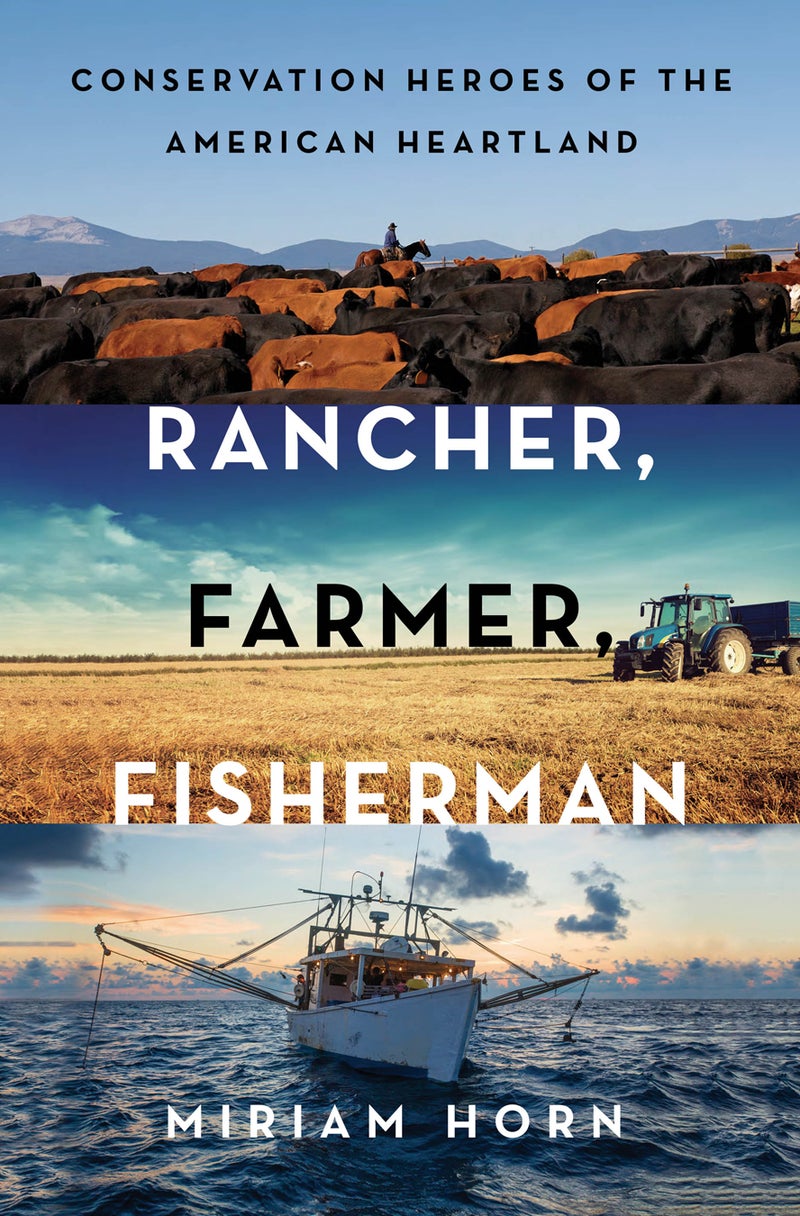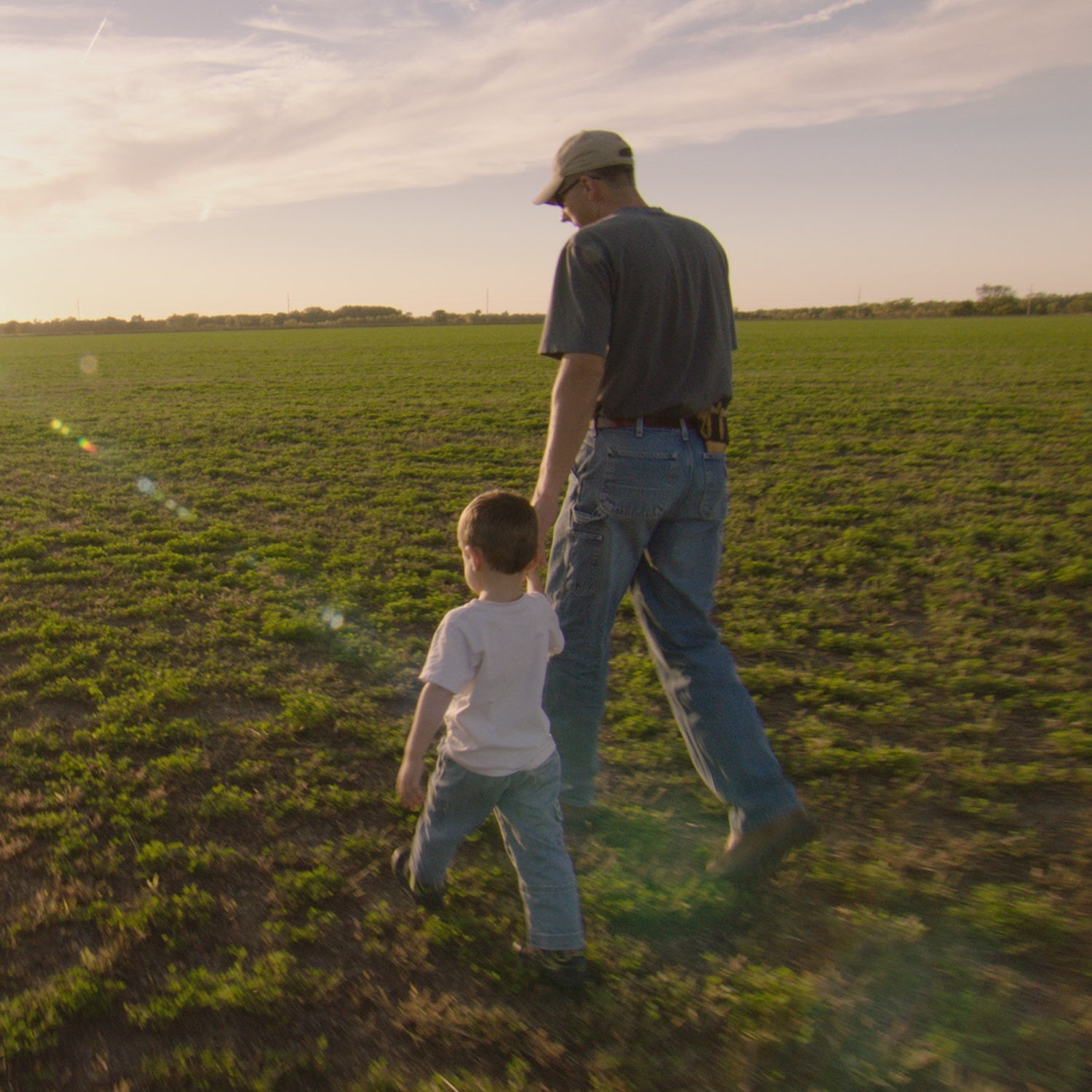Red or blue, rural or urban, conservative or liberal—even in an unusually scrambled election season, we’re constantly sorting ourselves into opposing camps, less “USA” than “Us vs. Them.” Each side stakes out an angry and inflexible set of beliefs on a broad range of issues. Each election feels more polarized than the last.
But a new book reminds us that these simple divisions don’t always hold (and thank goodness for that). In ($28, W.W. Norton and Co.), Miriam Horn profiles a series of regular people from flyover country—people who might not think of themselves as “environmentalists” but who do important environmental work. “All are conservationists,” Horn writes, “because their livelihoods and communities will live or die with these ecosystems.” And all of us are affected. It may be true that nowadays only one in 100 Americans is a farmer or rancher, but their crops and livestock slurp up of our consumptive water.

Horn’s title actually sells her book short. Over five long chapters, she introduces a rancher from Montana, a farmer from Kansas, an advocate for Louisiana shrimpers, a shipping CEO who works the Mississippi, and a fisher who works the Gulf of Mexico.
Everyone in Rancher, Farmer, Fisherman is laboring on the front lines of climate change. Sometimes the weather is wetter, sometimes it’s dryer, but it’s always more extreme. Take Justin Knopf, the farmer from Kansas (and star of Horn’s strongest chapter). The Knopfs don’t run a small organic farm; they grow enough wheat to produce 3.6 million loaves of bread per year. But Justin has watched his best topsoil become an endangered resource due to the reinforcing combo of global warming and relentless over-farming. His solution isn’t more of the same but a new “no-tilling” approach.
To Justin and other farmers, the iconic act of tilling the land actually does more harm than good, destroying the topsoil and the rich microbes that keep it healthy and fecund. So Justin fights invasive weeds not with a tractor but by sowing alfalfa, a plant that stirs up the soil’s own nutrients, injects it with extra nitrogen (cutting down on fertilizer use), and eventually chokes out the weeds (saving time and tractor fuel). It’s working, increasing his yields and protecting his soil. “Living things speak to us if we just pay close attention to what they’re trying to say,” Justin tells Horn.
Life is rarely as simple as it seems in an election year.
In each chapter, Horn presents a different character doing something similar to preserve or revitalize their immediate environment. These chapters include some wonderful details. (On his boat, the fisherman uses his ample belly to control the steering wheel, freeing his hands to text.) They offer glimpses into surprising communities. (Most Louisiana shrimpers turn out to be first-generation Asian Americans, with many of them living in Catholic-Buddhist hybrid households.) Horn focuses less on storytelling and vivid scenes than on capturing the feeling of just hanging out with these characters. The downside is that sometimes, sitting there, you’ll sneak a peek at your readerly watch. Horn lets her subjects ramble; she indulges in page after page of family history. While some of these moments are interesting on their own, they distract from her book’s larger point.
That’s too bad since this larger point remains so vital. Horn’s characters vary in their politics, but they all realize their challenges stretch beyond the ranch or farm. When she tries to pin down Justin’s politics, for instance, he sounds like an eco-agnostic. But he also sounds like a small-c conservative, someone interested in hedging his bets. “I don’t know if our more severe weather events are part of a long-term trend or not,” Justin says. “But it’s not important for me to know. What’s important is this: if it’s happening, what steps am I taking to make my little bit of land a more buffered system against an extreme climate?”
That may seem like a strangely measured thing for a Kansan to say when it comes to climate change. But it’s a good reminder that not everyone from the deeply red state votes Republican—and that not all Republicans, at the level of regular citizens, at least, hold the same rigid views. In fact, found that 51 percent of Kansans agreed with the statement that “stricter environmental laws and regulations are worth the cost.” Certainly the characters in Rancher, Farmer, Fisherman would agree.
Confronting our environmental problems, of course, will require solutions more complicated than a poll can measure. It will require discoveries and setbacks and compromises. (No-till farming, for instance, uses more herbicides than other approaches, and while Justin believes that’s a worthy tradeoff, other farmers and activists would disagree.) But it will also require us to remember that our states, our communities, and our professions—our people—are more complicated that we often think. It’s a big takeaway from Rancher, Farmer, Fisherman: Life is rarely as simple as it seems in an election year. And that’s worth keeping in mind come November 8, when some well-coiffed TV personality pronounces each of our states a monochromatic red or blue.


